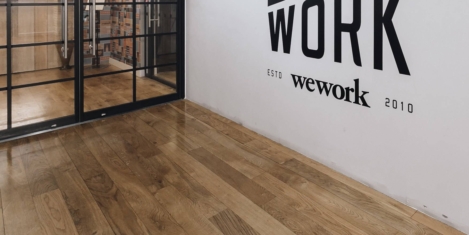September 26, 2015
Visions of the future of work + Gen Y hype + flexible firms 0
 In this week’s issue; legend of the UK office furniture sector, John Fogarty reflects on his five decades of experience; Mark Eltringham argues the TMT sector no more fell from the heavens than Gen Y, and Charles Marks weighs up the pros and cons of the BREEAM environmental standard. The financial sector dominates the annual list of Top Employers for Working Families and we reveal there’s a tendency to drift into caricature when describing multigenerational working. Activity in Europe’s commercial property markets is at its highest level since 2007 and colleagues, not bosses can make people feel more engaged at work. Check out our video evidence which shows how some visions of the future of work can be remarkably prescient while others get it completely wrong. Visit our new events page, subscribe for free quarterly issues of Work&Place and weekly news here. And follow us on Twitter and join our LinkedIn Group to discuss these and other stories.
In this week’s issue; legend of the UK office furniture sector, John Fogarty reflects on his five decades of experience; Mark Eltringham argues the TMT sector no more fell from the heavens than Gen Y, and Charles Marks weighs up the pros and cons of the BREEAM environmental standard. The financial sector dominates the annual list of Top Employers for Working Families and we reveal there’s a tendency to drift into caricature when describing multigenerational working. Activity in Europe’s commercial property markets is at its highest level since 2007 and colleagues, not bosses can make people feel more engaged at work. Check out our video evidence which shows how some visions of the future of work can be remarkably prescient while others get it completely wrong. Visit our new events page, subscribe for free quarterly issues of Work&Place and weekly news here. And follow us on Twitter and join our LinkedIn Group to discuss these and other stories.
































September 8, 2015
Over a fifth of working mothers denied flexible hours are forced to quit 0
by Sara Bean • Comment, Flexible working, News, Workplace
(more…)